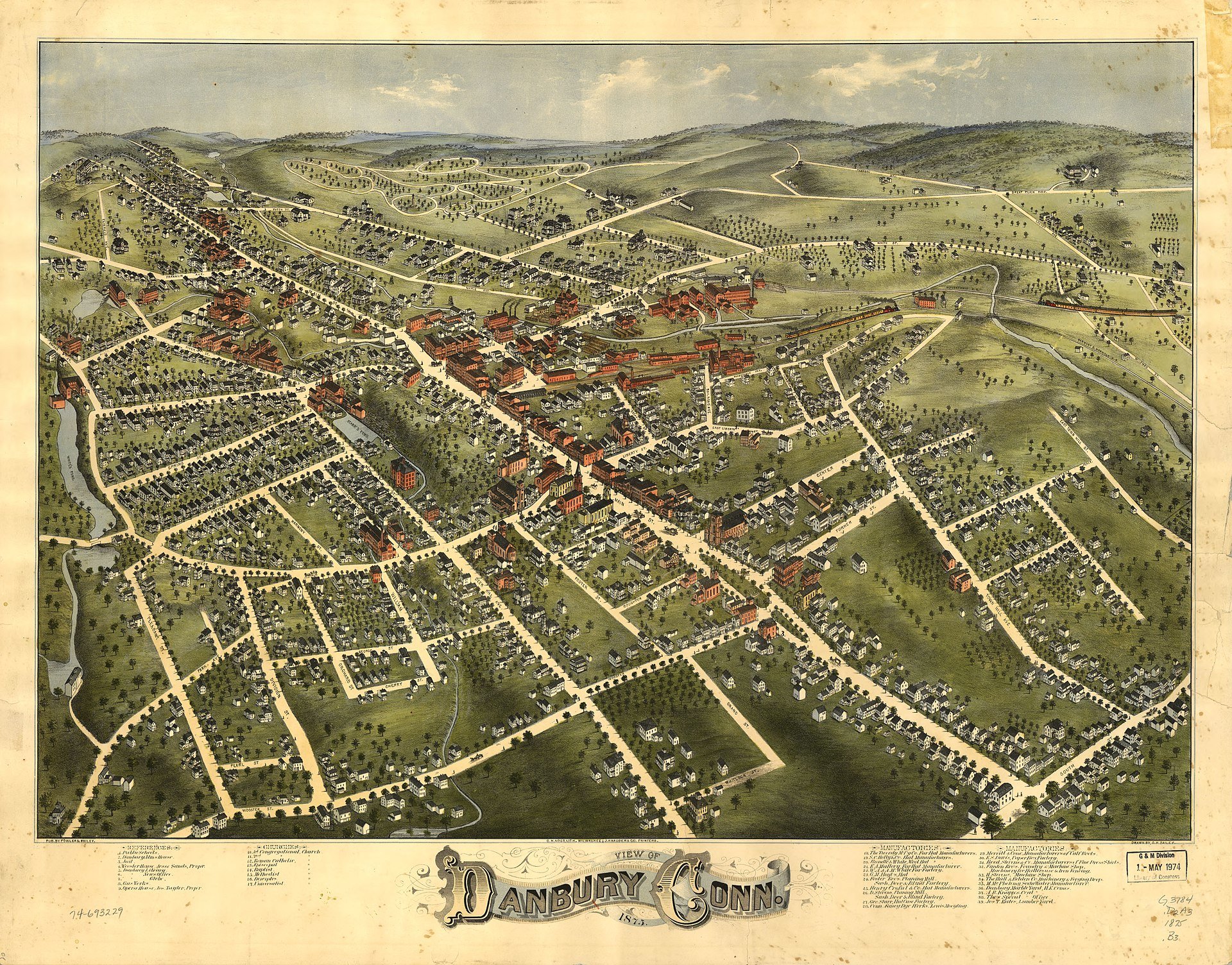
The horror, the horror
Charles Ives
“O Prejudice….You enter into the little boy of a New England town and make him stand and gape with the same horror at {the} man going into a Catholic church as the man going into a saloon.’’
— Charles Ives (1874-1954), famed American Modernist composer, insurance executive and native of Danbury, Conn. He’s a considered a father of estate planning.
Danbury, Conn., the “Hat Capital of the World,’’ in 1879
‘Willingness to be reformed’
The skeptical Charles Ives
“It is the courage of believing in freedom, per se, rather than of trying to force everyone to see that you believe in it – the courage of the willingness to be reformed, rather than of reforming – the courage teaching that sacrifice is bravery and force, fear – the courage of righteous indignation, of stammering eloquence, of spiritual insight, a courage contracting or unfolding a philosophy as it grows—a courage that would make the impossible possible.’’
-- Charles Ives (1874-1954), in Essays Before a Sonata. This Danbury, Conn., native composed many avant-garde musical works and was an insurance executive and brilliant essayist. He is considered one of the greatest American composers. During his career as an insurance executive and actuary, Ives devised creative ways to structure life-insurance packages for people of means, which laid the foundation of the modern practice of estate planning.
'Single emptiness'
— Photo by Lumulus
“It is deep January. The sky is hard.
The stalks are firmly rooted in ice.
It is in this solitude, a syllable,
Out of these gawky flitterings,
Intones its single emptiness,
The savagest hollow of winter-sound.”
Wallace Stevens.
― Wallace Stevens, (1879-1955) was a Hartford-based poet, insurance executive and lawyer. He’d walk most days to and from his house, below, to his office at the Hartford Accident & Indemnity Co. Another big name in the arts who was an insurance executive was Charles Ives (1874-1954), who was raised in Connecticut and became one of America’s greatest composers.
The house of the late Wallace Stevens.





